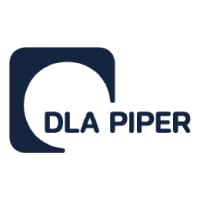

General counsel | Betonmast AS



Lars Fauske
General counsel | Betonmast AS
Team size: 3
What are the key projects that you have been involved in over the past 12 months?
Betonmast is currently involved in several significant projects that, when completed, will serve important commercial and social purposes. Key projects include Nardoveien (724 student housing units, contract value NOK 980m), Campus Kristiansund (research and innovation centre, contract value NOK 580m), and Project Vision (industrial and office building, contract value NOK 840m). My role has focused on preparing robust and clear contractual frameworks and providing ongoing legal advice to facilitate efficient and predictable project execution.
In the field of litigation, I represented Betonmast in a significant dispute arising from a rehabilitation project, collaborating closely with my colleague Kristine Halvorsen. The dispute was resolved through structured negotiations.
I also had the privilege of serving as a committee member in the development of the new Norwegian Standard contract for public-private partnership contracts for buildings (NS 8422), representing the contractor side. The contract was officially published in December 2024.
Finally, an inspiring project was to lead the development of an internal AI model that reviews all guarantee documentation from subcontractors and suppliers, ensuring compliance with our internal requirements. The model was implemented in Betonmast’s operating units and has reduced both risk and costs.
What do you think are the most important attributes for a modern in-house counsel to possess?
In my view, the most critical factor is to understand the industry and the commercial drivers in which the organisation operates. It is essential to cultivate a genuine curiosity on this, ensuring the provision of relevant and timely advice.
I also believe it is important for an in-house counsel to operate on both a strategic and an operational level. By engaging directly with projects and day-to-day challenges, the legal function can provide practical insights into broader decision-making. This dual perspective strengthens the organisation’s ability to align legal risk management with its strategic goals.
Furthermore, I emphasise dedicating time to getting to know the people within the organisation. Strong internal and personal relationships are key to effective professional collaboration, and they also contribute to a more positive and productive work environment.
Finally, a key factor is, of course, recruiting the right people to the in-house legal team. I am fortunate to lead a legal team comprising the highly talented lawyers Maja Berthelsen and Kristine Halvorsen.
Based on your experiences in the past year, are there any trends in the legal or business landscape of which you think other in-house counsel should be aware?
For in-house counsel, it is important to maintain curiosity on artificial intelligence. Text analysis through AI is now widely accessible. In projects involving large volumes of documents, AI can serve as a helpful tool for increasing efficiency. AI should, of course, be regarded as a tool to enhance efficiency and upper the quality, not a substitute for legal expertise.
In my opinion, the key to successful implementation of AI tools lies in training the model to identify the relevant information. The knowledge of what is concerned as relevant information is typically found within the organisations themselves. I therefore believe that organisations should consider developing tailored AI models internally, rather than relying on external solutions.
Another growing trend in project-based organisations is the integration of proactive dispute resolution mechanisms during project execution. Poor project performance is often linked to strained collaboration between contracting parties. In my view, legal advisors should prioritise contract frameworks that foster cooperation and early resolution of disputes. Project-Integrated Mediation (PRIME), for example, is a valuable tool for addressing significant conflicts before they escalate.